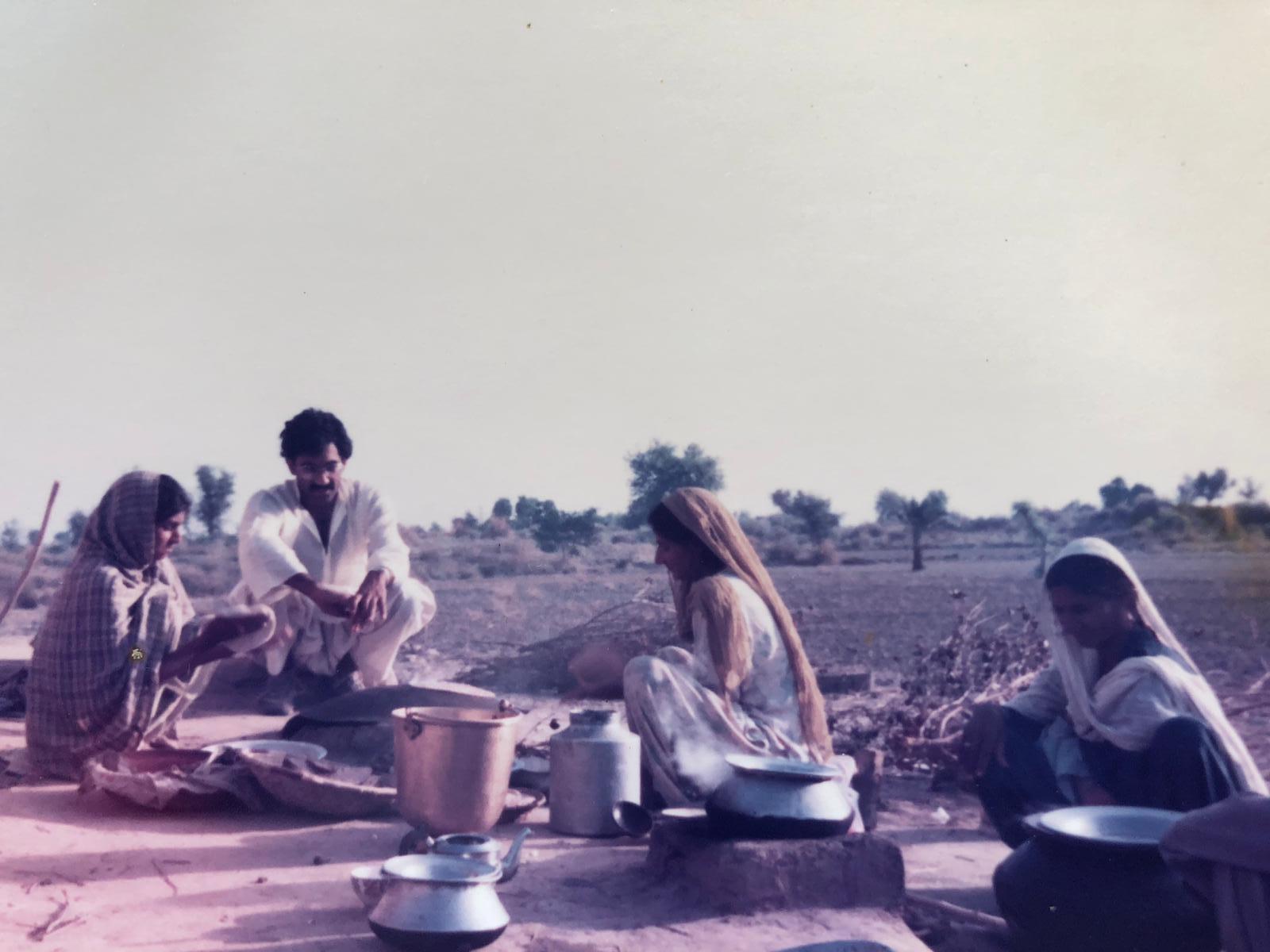
Zafar Bashir
The songs and stories of South Asian migration to the UK
To celebrate South Asian Heritage month and mark 75 years since Partition, gal-dem speaks to 10 people who share their stories through music.
Safiya Bashir
15 Aug 2022
It’s been over 60 years since my grandparents migrated from Pakistan to the UK. Even though their move was a long time ago – and my teenage years included resistance to my heritage – South Asian culture remains embedded in our family. The lack of education about the British Empire in school means it was only through speaking to older generations and reading books such as Kavita Puri’s Partition Voices that made me realise the importance of conserving my culture.
Indian independence, which was declared by the British, came into effect on 15 August 1947. What was then British-ruled India was divided in two, a partition that saw forced mass migration, sexual violence and massacres, and resulted in a Hindu-majority India and a Muslim-majority Pakistan (which then included present-day Bangladesh). Thanks to the British Empire’s 200-year long imperial rule, the newly independent countries were hopelessly poor and entered a period of enormous uncertainty. Meanwhile, the UK was struggling to rebuild following the Second World War and, as a result, offered Commonwealth citizens free migration, leading to an influx of people from the region moving to the UK.
During the early 1960s, my grandparents made the journey to start a new life in the UK. Working overtime in low-paid jobs, they struggled to support their new life in London, as well as send regular money to family back home in Langrial, Pakistan. In the seven decades since the partition, people of South Asian heritage have continued to move to the UK and according to the 2011 census, we are the nation’s biggest minority group. Yet as time passes, it can be difficult to find a sense of belonging when so far removed from homes and heritage.
“Music has the power to connect us to our evolving identities and create a new idea of what it means to be a British South Asian”
Music has the power to act as an important connector and demonstrates solidarity for immigrants and minorities across the world. For me, watching contemporary pop singer Natasha Noorani sing in Urdu at Pakistan’s first Boiler Room event invoked a sense of pride and familiarity. For my mum, listening to Bollywood hits at Mehndi parties will take her back to her childhood in Hounslow surrounded by old friends and family.
For those who migrated soon after the partition, music can evoke memories of home. For those of us who are third generation, music has the power to connect us to our evolving identities and create a new idea of what it means to be a British South Asian.
gal-dem asked 10 people who have migrated from India, Pakistan and Bangladesh about the songs and stories that remind them of home.
Arthi, 27 – born in Chennai, India and moved to Merthyr Tydfil, Wales in 1997
‘Chinna Chinna Aasai’ reminds me of my mum. She loves this song and I recently rediscovered A.R. Rahman when I was questioning my identity and became interested in music. He did the scores for films that made it internationally like ‘Jai Ho’ from Slumdog Millionaire. I then started looking into his back catalogue and it reminded me of songs I listened to growing up. I feel like many people’s understanding of Indians in the UK is quite heavily focused on the northern and middle regions of India so the fact that he is Tamil and from the south is really important to me.
As a DJ, I’m rinsing a lot of edits by diaspora artists from South Asia living here. London-based DJs Kiran and Darama from Daytimers released an edit of ‘Hai Hai’, which is a classic Bollywood hit. I don’t really engage with Bollywood, so this edit of the song was new to me. I’m pretty out of touch musically with what’s happening in India, which is a shame, I used to have more of a connection but I’ve found it hard to keep in touch since leaving my family home.
Song: ‘Chinna Chinna Aasai’, A.R. Rahman
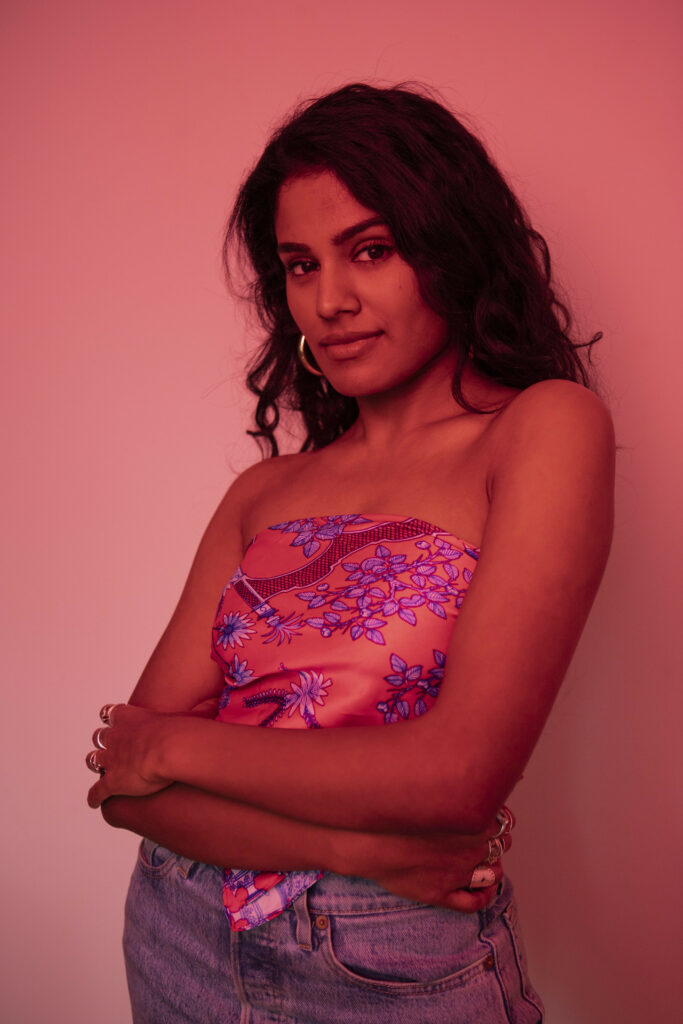
Shamsul, 60 – born in Hobigonj, Bangladesh and moved to London, England in 1992
We never had musical instruments in the house. We didn’t even have electricity. However, I have strong memories of singing at night after finishing our homework, with the light of a kerosene lamp. My father would teach us how to recite Islamic and secular poetry. As he recited the rhythmic poems of Nazrul Islam, my oldest sister, who was cooking, would sing his songs.
The songs of Nazrul Islam that we sang together were the music that inspired my generation and generations before us against the rampant injustice and inequalities that we all experienced. We saw him like one of us, coming from a non-privileged background. He was deprived of formal education and systematically oppressed by the colonial administration for his ideas and activism. His song ‘Karar oi louho kopat’ reminds me of the vigour and the spirit that kept us awake against rampant injustice. The words still ignite a spirit of protest.
“The words still ignite a spirit of protest”
Shamsul
Song: ‘Karar oi Louho Kopat‘, Nazrul Islam
Srinidhi, 21 – born in Mumbai, India and moved to Harrow, England in 2001
I have a very distinct memory from when I was five of my mum doing the laundry and playing ‘Can’t Get Enough’ by Raghav ft. Iceberg Slim on her Boombox. From the moment I heard it, I thought it was brilliant and I’ve found myself coming back to it in the past few years.
With the growing prominence of collectives like Daytimers and South Asian DJs, I’ve been able to come back to this Punjabi RnB as well as this Punjabi bhangra/garage sound, and be able to fully appreciate and engage with what it has to offer.
Song: ‘Can’t Get Enough’, Raghav ft. Iceberg Slimm
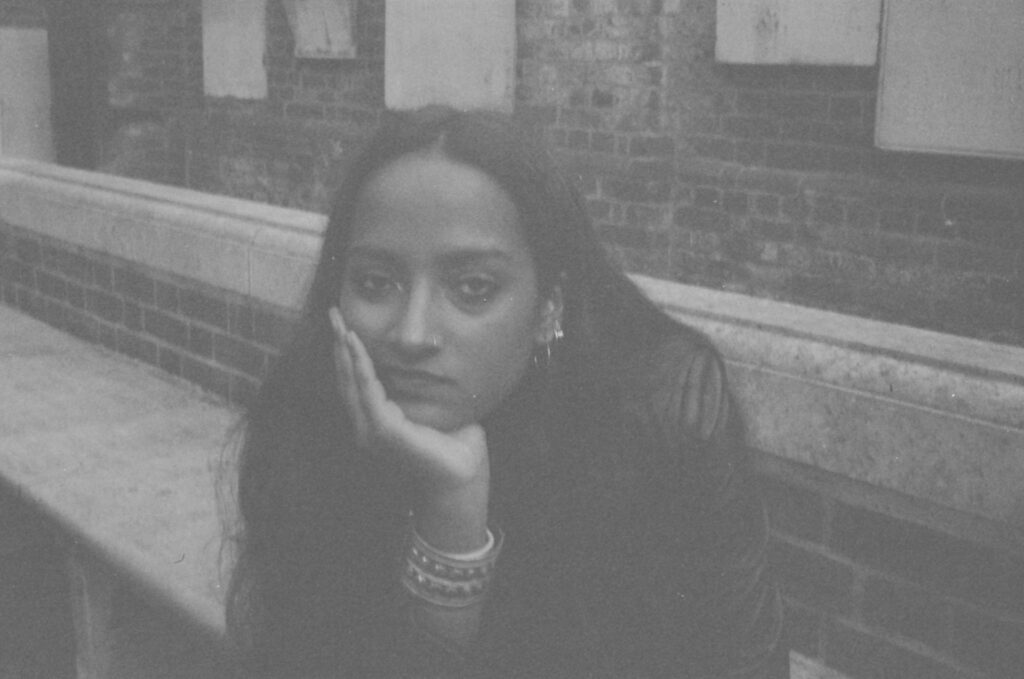
Tania, 23 – born in Kerala, India and moved to Eastham, London in 2000
After leaving Eastham, my family moved to Hounslow. I remember dealing with a lot of issues when growing up. Hounslow has a very big brown community but I was raised Catholic. I went to an Irish Catholic school in Richmond and I was the only South Asian girl there.
I had a hard time growing up between the two cultures but I remember my mum took me to the cinema to see the Bollywood film Jodhaa Akbar. It’s a historical love story about a Hindu princess and a Muslim prince falling in love together. It was the first time I saw a female Bollywood character who was independent and knew what she wanted. I also thought it was really cool to be in Cineworld watching a part of my history. In school, we don’t learn about India so this film was really special to me. Ever since then I’ve been obsessed with it.
Song: ‘Jodhaa Akbar’ Soundtrack
Shraddha, 51 – born in Kolkata, India and moved to Leicester, England in 2000
It’s been over 22 years since I moved from Kolkata to the UK. there’s a fine line between the two countries – for me, both are home. Thankfully, music has no boundaries, so I can enjoy over here what I enjoyed in India too.
Songs from the film Phir Bhi Dil Hai Hindustani will always remind me of when my husband organised for my daughter and me to move to the UK to live with him. There’s a line in the song that says “tum aye to hawaen mein ek Nasha hain”, which reminds me of the joy we felt when he came home and the happiness of starting our new life together. The song makes me nostalgic, joyous, and sad at times too because there’s a part of me that I left behind in India. But songs like this made my life easier: we had a new life to look forward to and a home to build.
Song: ‘Aur Kya’, Phir Bhi dil hai Hindustani, Jatin-Lalit
Jubada, 58 – born in Sylhet, Bangladesh and moved to London, England, in 1978
This is an anthem in Bangladesh, a bit like how we see ‘God Save The Queen’ in England; it’s instilled in you. It’s the first thing I think of when I think of home, it makes me feel nostalgic and a sense of pride. I don’t identify with contemporary music, but tend to listen to traditional music from Bangladesh, which feels more wholesome and romantic.
The transition of moving to the UK was really tough. I was just 14 and remember stepping off the plane and thinking how cold it was. Because of the sudden drop in temperature, I thought I was covered in water because I wasn’t used to a cold breeze. I missed the village life in Bangladesh where everyone in the village knew each other and said hello. In the UK I struggled to find that outside of my family.
Song: ‘Amar Shonar Bangla’, Glocal Orchestra
Honeyjamn, 25 – born in Karachi, Pakistan and moved to London, England in 2018
It is 2006, I’m on the way to Sandspit Beach, packed in the back seat of my uncle’s car with five of my cousins, and we’re all screaming “Suno ke mei hoon jawaaaan!, Khula hai sara aasmaan” (“Listen to me, for I am young. The skies are open for me!”). Oblivious to the noisy Karachi traffic while driving through some of the city’s most violence-ridden neighbourhoods, all of us are enraptured by this coming-of-age song by Noori, our voices dripping with fiery optimism.
Now at 25, I’m sitting in my London office chair, visa in my pocket, jamming to Noori while I click through spreadsheets. As is typical for many Desi expats, I live here in comfortable inertia, occasionally jolted by bouts of guilt for having chosen to escape.
Luckily, my connection to music bridged this gap for me. During the 2020 lockdown, I started working with Karachi Community Radio (KCR) to do an online radio show called Sofa sessions. Through KCR, I connected with a community of Pakistani artists, many of whom are also looking for that sweet spot between community, freedom and purpose. I feed my nostalgia Urdu poetry and Daal, trying to ground myself in acknowledging my privilege in being here.
Song: ‘Suno Ke Mein Hoon Jawan’, Noori
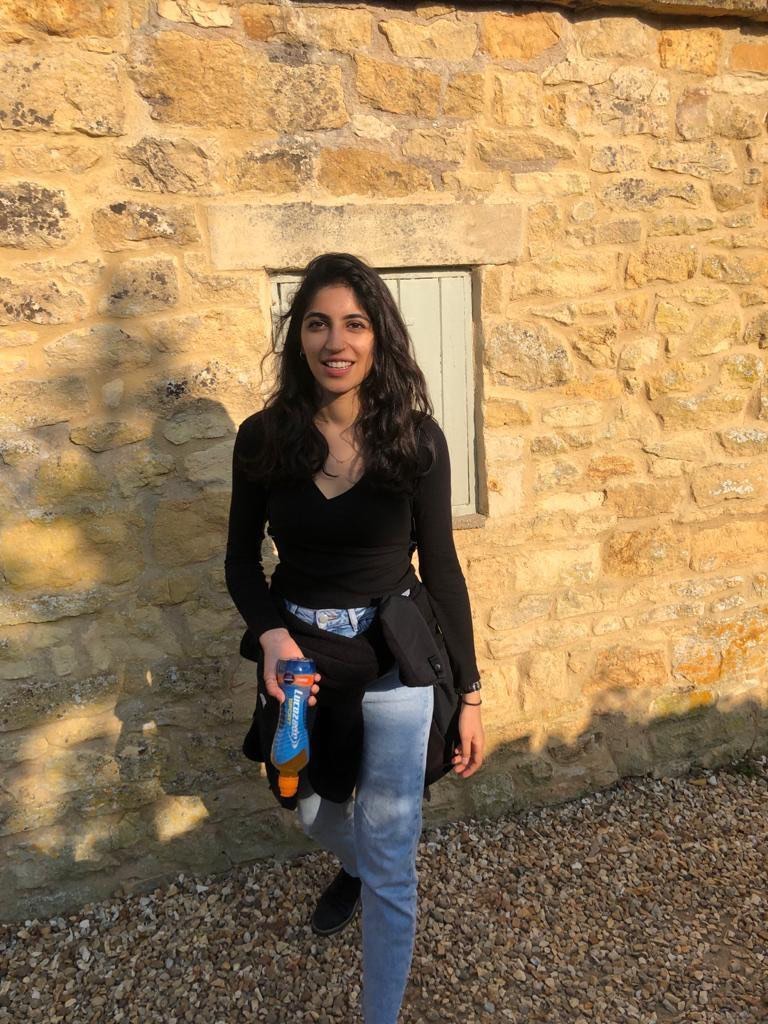
Akshay, 36 – born in Bangalore, India and moved to London, England in 2020
I’m sure everyone who leaves their home country experiences a transitional state between the inherited and the new – what you carry as memories crackling against a new alien space.
“Everyone who leaves their home country experiences a transitional state between the inherited and the new – what you carry as memories crackling against a new alien space”
Swet Shop Boys became a bridge from the known to the unknown and I was playing them a lot when I moved to the UK. It hasn’t been easy to connect with people of Indian origin who grew up outside India – our circumstances were so different. I feel like more and more we’re able to connect because music and tracks like this have really helped to bring us together.
Song: ‘Phone Tap’, Swet Shop Boys
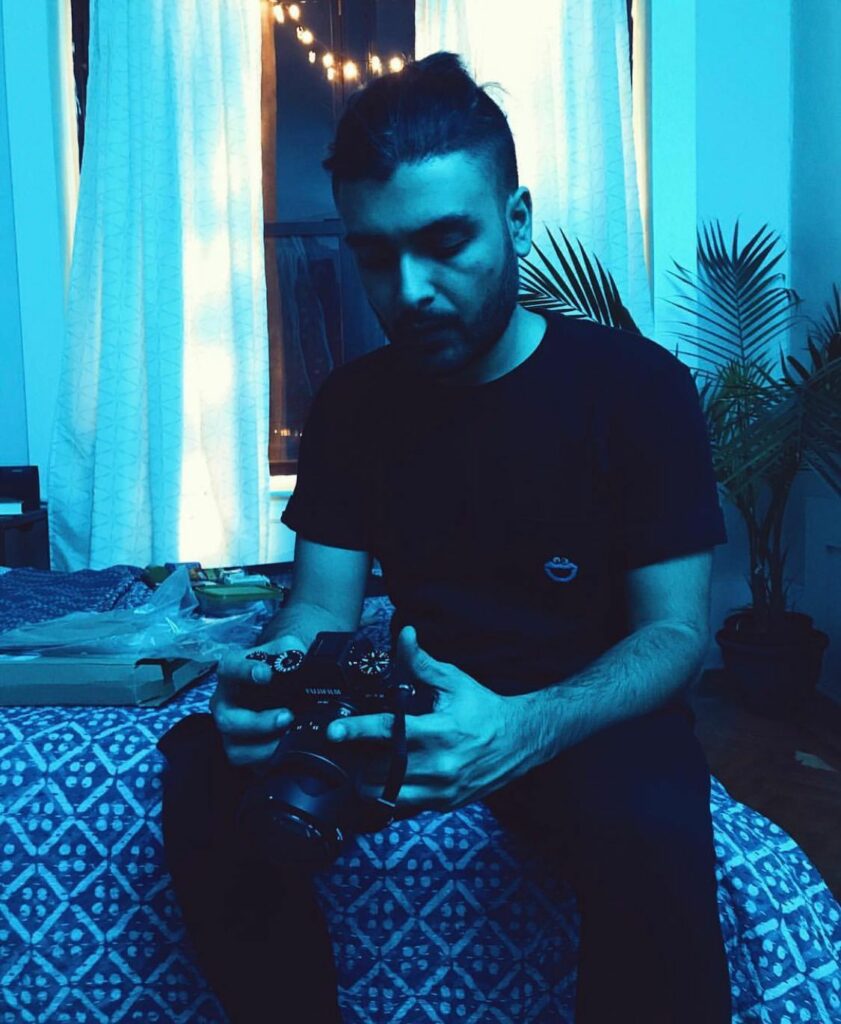
Kathy Sethi, 60 – born in Karnataka state, India and moved to Surrey, England in 1978
My father was a missionary in India, so a strong memory of my Indian home is from Christmas times when carol singers used to come to our house anytime during the night the whole month before Christmas. It was so exciting for us because we got up and followed them around all the other houses singing carols all night.
But as well as these carols, I’ll always remember Bollywood songs that were such a hit when I was living in India. The tracks from Sholay with Amitabh Bachan will always take me back to my childhood.
Song: ‘Sholay’ Soundtrack
Zafar, 59 – born in Faislabad, Pakistan and moved to Feltham, England in 1966
When we were younger, the only form of communication with our family back in Pakistan was through letters that would come every few months. When the letters came, it would be a real occasion. At that time, our mum couldn’t read Urdu. The letter would sit on the mantelpiece waiting for dad to come home. When he came back from work, he wouldn’t open it straight away but would shower, and have his dinner first. And then when he was ready, we would all sit around him as he slowly read the letter from start to end, not missing anything out.
The letters were all about general family life and what was going on; occasionally we’d hear about someone who had passed away and then also about engagements and marriages. It was mainly things about the farm we came from; news about the crops, how many buffalo we had, and how much milk was being produced. They were very run-of-the-mill things but for mum and dad, they were very important things. This tradition continued for years and years until we were much older. It was a real sense of occasion and now makes me think about how far we’ve come.
This song translates to “a letter has come from my home country.” It brings so many memories of my childhood and that longing to be back home.
Song: ‘Chiiti Aayi Hai’, Pankaj Udhas
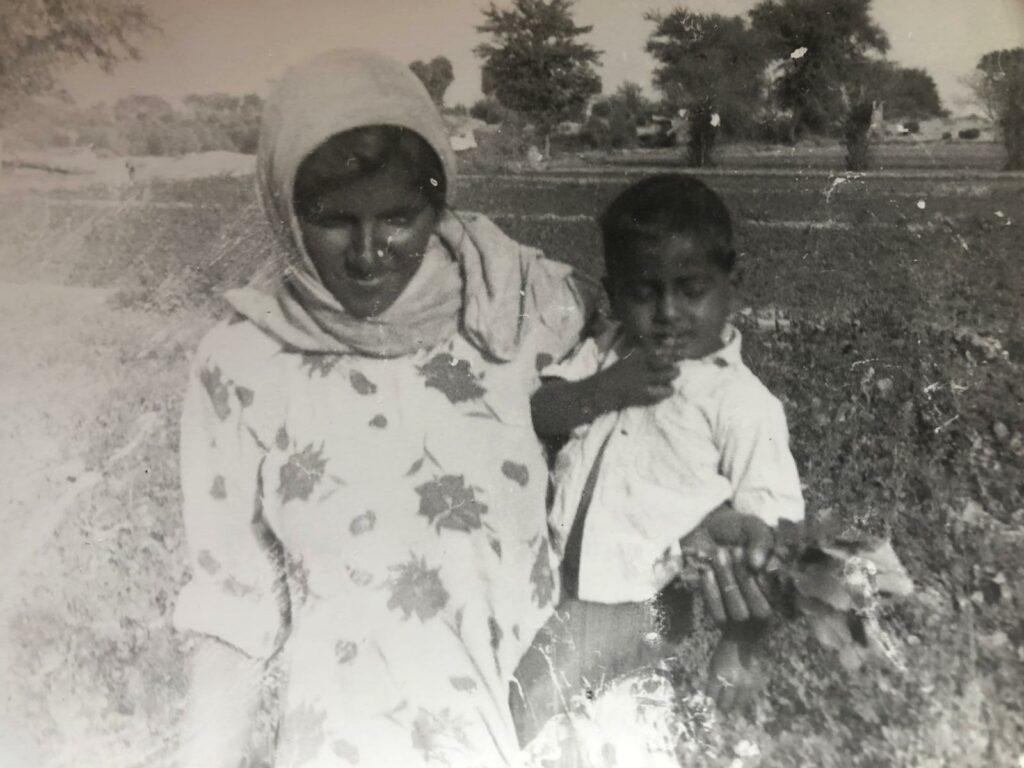
This article was amended on 15 August to state that Arthi was born in Chennai, India. An earlier version mistakenly said Chanay.
Our groundbreaking journalism relies on the crucial support of a community of gal-dem members. We would not be able to continue to hold truth to power in this industry without them, and you can support us from £5 per month – less than a weekly coffee.
Our members get exclusive access to events, discounts from independent brands, newsletters from our editors, quarterly gifts, print magazines, and so much more!









